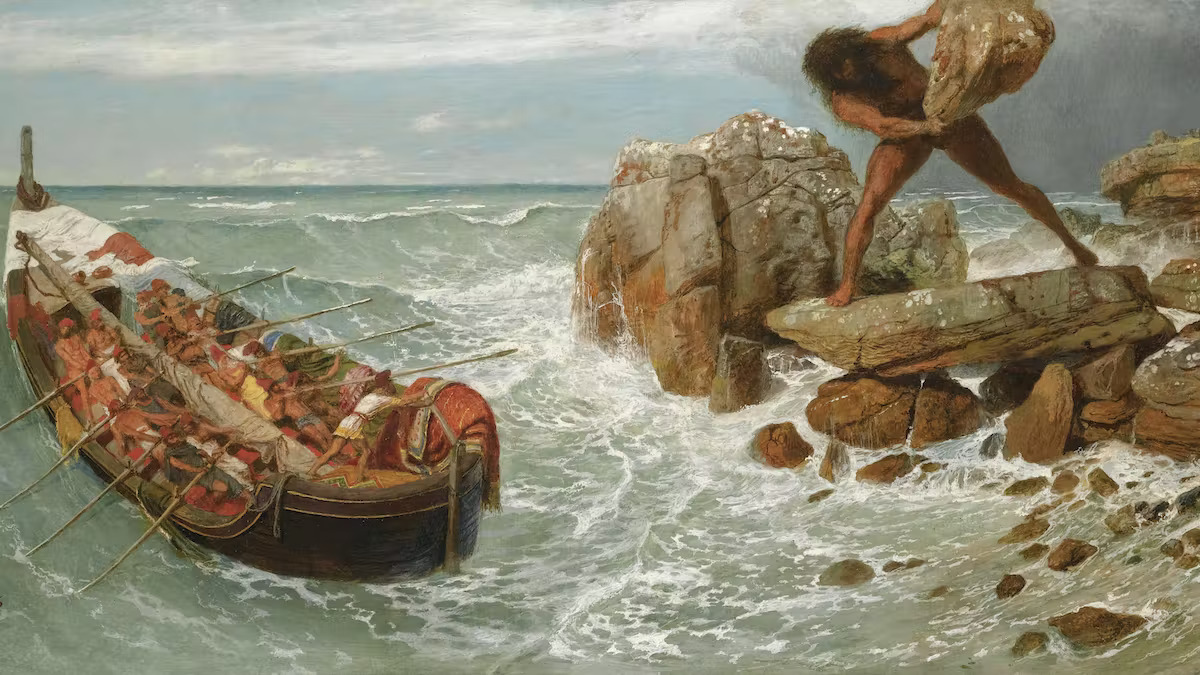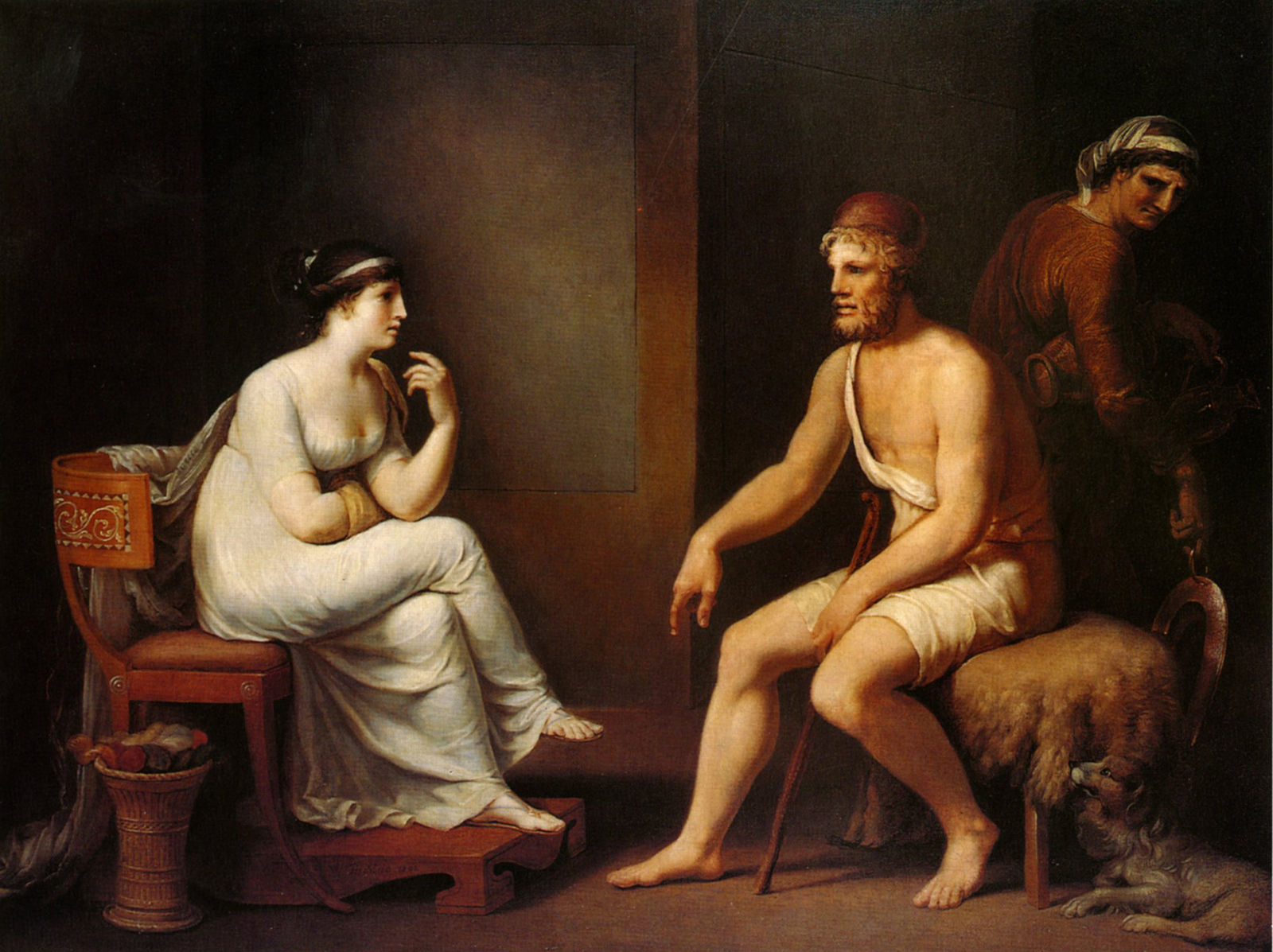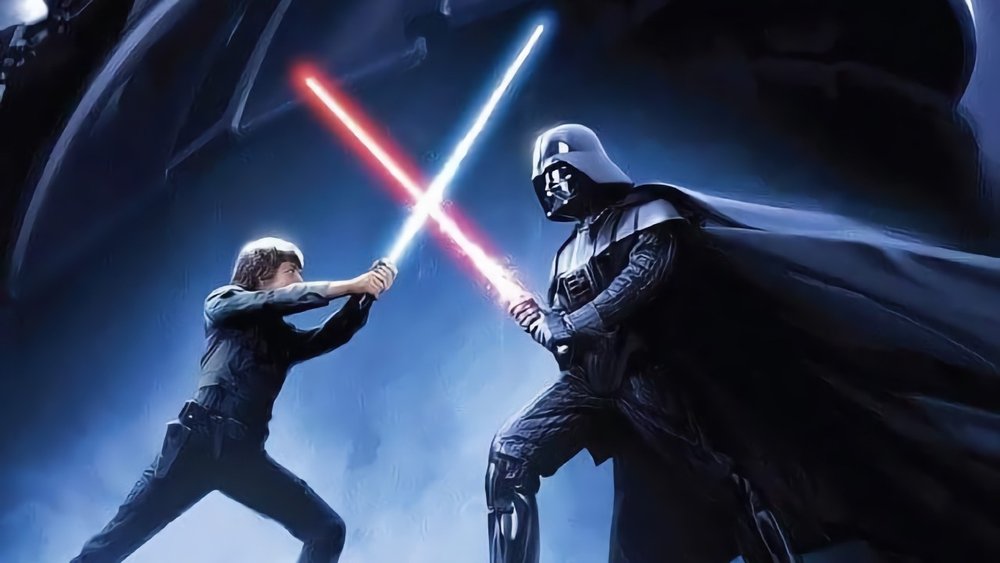‘I am your father.’
Forget Darth Vader addressing Luke Skywalker. These four words could just as easily be spoken by Homer, the father of the epic tradition, to George Lucas, the creator of the American franchise Star Wars.
We all know that the ancient Greeks have profoundly influenced modern society – from Aristotle’s contribution to western philosophy to the effect of classical architecture on twenty-first century art and design.
We also have the Greeks to thank for moulding popular culture. Elements of Greek mythology and culture have shaped our films, TV shows, poetry, and books!
One of the biggest names in Greek literature is Homer. Both the Iliad and the Odyssey have inspired many pieces of modern literature and media. I believe that one of the most noticeable examples is Star Wars, an epic story known and loved by many.
The question is, did the creator of Star Wars, George Lucas, ever read Homer?
Star Wars is an epic adventure that takes place in a galaxy far, far away. The story follows a group of characters known as the Rebellion in their efforts to defeat The Dark Side, once and for all. The main protagonist for the first few films is the noble Luke Skywalker, the legendary Jedi master.
While some may see Luke Skywalker as an ordinary hero, it is not hard to see the similarities between him and the legendary Odysseus of Homeric epic. While Luke was not born into nobility, he is a great warrior, much like Odysseus. In Homer’s Odyssey, Odysseus says, ‘Men hold me formidable for guile in peace and war: this fame has gone abroad to the sky's rim’ – a description that could also be applied to Luke.
Not only do both of them show excellence in war, but they both face some sort of supernatural being. For Luke, he is constantly in opposition to both Darth Vader and The Emperor, two formidable villains. Similarly, Odysseus, quite unfortunately, is on the receiving end of Poseidon’s trident, the Greek god of the sea. This is because Odysseus unwittingly blinds Poseidon’s son, the one-eyed cyclops, Polyphemus.
Looking at the bigger picture, we can see that the journey that the Rebellion takes is an odyssey in itself.
Harman and Holman say that the traits of an epic include travel over a vast setting: ‘The action spans not only geographical but also often cosmological space: across land, sea, into the underworld, or through space or time’. The Odyssey is a prime example of this – Odysseus travels to many nations over the expanse of twenty long years to reach nostos (homecoming). Similarly, Luke and his companions travel for many years to save the galaxy from The Dark Side. This correlation is not hard to miss!
Another similarity between Star Wars and the Odyssey is the epic scene where the protagonist reunites with their family.
When Odysseus returns home to his family, he is disguised as a beggar to protect himself from the suitors that are invading his home. He eventually slaughters all of them and is reunited with his wife, Penelope. After his reunion with Penelope, Odysseus sets off to reunite with his father, Laertes: ‘That man am I, father, myself, standing here, of whom you ask, come back in the twentieth year to the land of my fathers.’
We can see aspects of this in Star Wars, too. In Return of the Jedi, Luke goes back to Tatooine to save Han Solo from Jabba the Hut, whom we can compare to the suitors. Luke then finds his father, Darth Vader, and surrenders to him. He accepts that, although Darth Vader has been corrupted and made to work under an evil master, this is his father.
This also links to a major idea in Homer’s Odyssey, the theme of recognition. In Book 19, Penelope questions Odysseus who is disguised as a beggar. She asks him questions about their marital bed – the answer to which only he would know – in order to assure herself of his identity.
Penelope’s recognition of Odysseus links to Luke’s recognition of Darth Vader. Like Penelope, at first, Luke does not know the true identity of his enemy. Only when he meets Darth Vadar in person, and hears him speak those famous four words, does he learn the truth, ‘I am your father.’
It is safe to say that there are many similarities between the plot of Star Wars and Homer’s Odyssey. This includes the epic hero archetype and the theme of nostos or homecoming.
George Lucas might never have read Homer, but many of the epic tropes are present in his work and it is fascinating to explore how the themes of ancient Greek literature are still visible in modern media.
Dilara Paksoy is a sixth form student at Bentley Wood High School for Girls. She has always loved Greek mythology and has particularity enjoyed reading the works of Homer and Sappho. Dilara is looking forward to studying classical studies at university next year.



